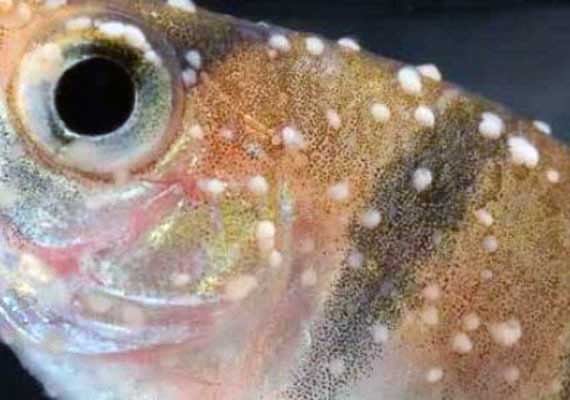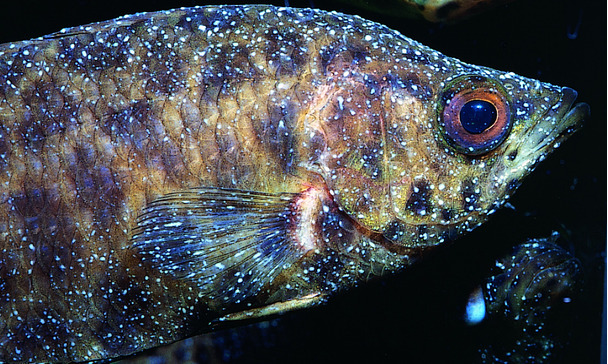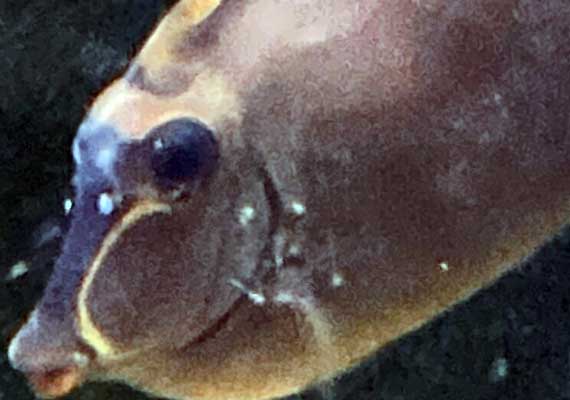If you have ever kept fish you have probably heard of Ich. Ich is a small tick like parasite that looks like a salt granule. This common parasite is always present in aquariums. When fish are under stress it is possible for them to “catch” Ich. This is similar to when you are stressed, your immune system is weakened and you may catch a cold.
So why is the fish stressed?
Temperature flux – a daily change of temperature of 3 degrees or more will cause problems for many fish especially marine fish. Check your temperature first thing in the morning and again just before turning out the lights and compare the difference. Set an aquarium heater at the higher temperature if necessary.
Inappropriate pH – Salt water fish need to be maintained at 8.2-8.3. Most fresh water fish are happy with a neutral pH of 7.0, however, Discus and rummy nose tetras prefer soft acidic water with a pH around 6.0. African cichlids like hard water with a high pH 7.8-8.2. Gold fish and live bearers such as sword tails, platys, guppies, and mollies do well in a pH around 7.5.
High waste levels – Any ammonia or nitrite will cause stress on fish, it can literally burn them. Also high nitrates sustained over time will wear fish down and weakens there immune system.
Psychological stress – even subtle domination among tank mates is enough to cause too much stress. Your fish can see you as well as you see them, therefore, there behavior changes when you enter the room making it difficult to catch a bully in the act.
Passive slower moving fish will suffer being housed with fast voracious fish even if they are not directly picked on.
So before you dump medicine in you aquarium try to figure out why your little friend got Ich in the first place and correct that problem first, and then if necessary medicate.
A natural way to inhibit Ich’s reproduction in marine aquariums is to lower the salinity – -density. Adding aquarium salt to a fresh water tank will have the same benefits.
Some fish are more susceptible to Ich than others, for example many Tangs seem to have less resistance to Ich than other fish.


 and become cloudy. Flukes are not uncommon, especially in the summer, but the good news is once identified they are easy to treat with a reef safe medication called praziquantil. If you notice the above described behavior just medicate, it can’t hurt.
and become cloudy. Flukes are not uncommon, especially in the summer, but the good news is once identified they are easy to treat with a reef safe medication called praziquantil. If you notice the above described behavior just medicate, it can’t hurt.